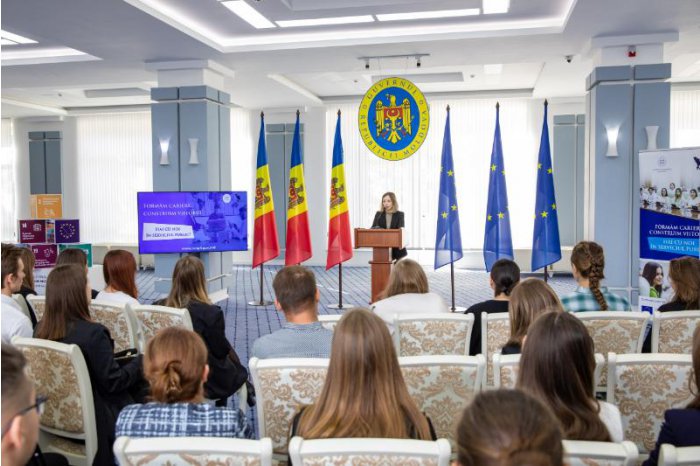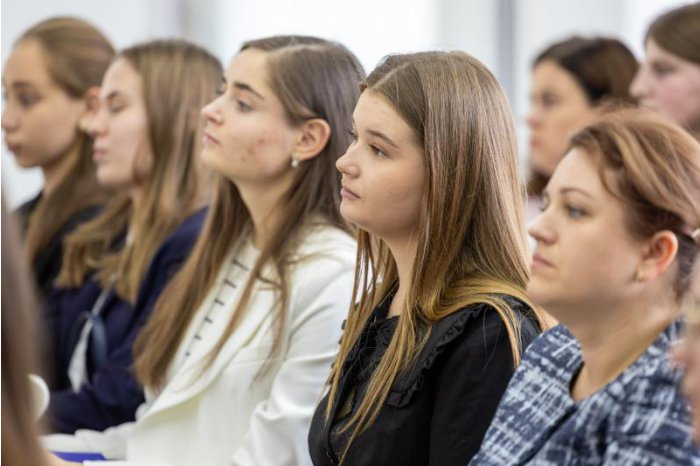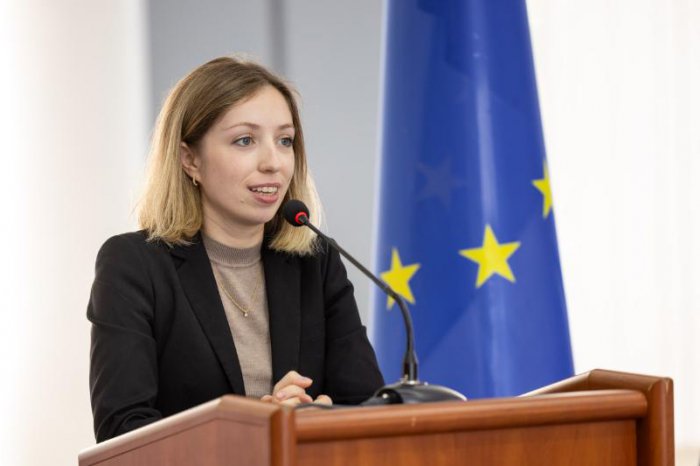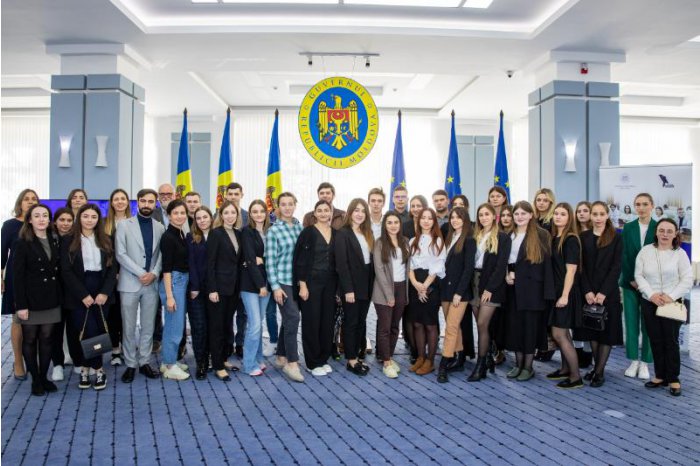Moldovan government selects 32 young people within governmental programme on probation
19:08 | 27.10.2023 Category: Official
Chisinau, 27 October /MOLDPRES/ - Thirty two young people selected following the interview test starting from 1 November will participate in the governmental programme of paid probations in public service, launched by the cabinet for the first time ever this year. The probationers will work at the Parliament’s Secretariat, President’s Apparatus, State Chancellery and ministries and will receive a monthly scholarship of 3,000 lei, the government’s communication and protocol department has reported.
Attending the event on the programme’s launch, the state secretary of the State chancellery, Ana Calinici, thanked the participants for the interest showed and determination to develop practical skills in diverse sectors. The official appreciated the support of the European Union’s Delegation for the support provided to the authorities in the information and visibility campaign, as well as for the consistent backing of the initiatives which bring young people to public administration and given them opportunity to get more professional experience, with possibility of subsequent employment in public offices.
„In the process of selecting participants in the programme, we made sure that we have young people with potential, who want to remain at home and to contribute, along with us, to the European future of Moldova. At the first edition of the programme, we have also our students in Romania, who return home to be part of the governmental Programme on probation. We will help you easier get involved in the programme, we will organize trainings and the mentors will take care to guide you at all phases of the probation,’’ Ana Calinici told the young people selected for the programme.
The launch of the programme was preceded by an information campaign, held at three of the biggest universities of Moldova, at the television, as well in the online environment. The informative materials used in the campaign were produced with the financial support of the European Union.
Photo: Government





